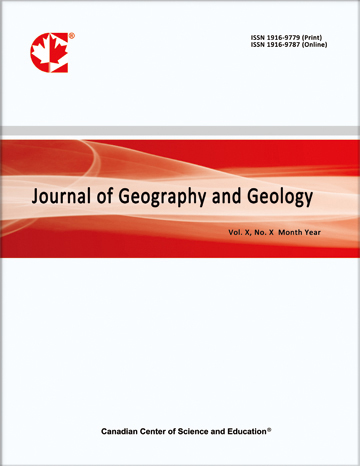Human Health Vulnerability to Climate Variability: The Cases of Cholera and Meningistis in Some Urban Areas of the Far North Region of Cameroon
- Sunday Shende Kometa
- Mathias Ashu Tambe Ebot
- Humphrey Ndi Ngala
- Amawa Sani Gur
Abstract
Vector-borne diseases and their incidence in the northern Cameroon particularly the Far North Region have been recurrent and are on the increase. This paper assesses the impact of climate variability on the health of the population of the Far North Region of Cameroon which is characterised by a tropical semi-arid climate in the vicinity of the Lake Chad. Secondary data sources (Epidemiologic, climatic, ecologic, socio-economic data), questionnaires, interviews and focus group discussions provided relevant data. The paper examines the relationship between the outbreak of diseases and variations in some climatic elements. It highlights the relationship that exists between the direct effects of climate variations and the development of vector-borne diseases and their effect on human health. The results reveal a strong positive correlation between changes in the climatic elements and the incidence of vector-borne diseases particularly cholera and meningitis. The study makes proposals on ways of militating against the impact of vector-borne diseases on human development in the region.- Full Text:
 PDF
PDF
- DOI:10.5539/jgg.v5n1p116
Journal Metrics
(The data was calculated based on Google Scholar Citations)
Google-based Impact Factor (2018): 11.90
h-index (January 2018): 17
i10-index (January 2018): 36
h5-index (January 2018): 13
h5-median(January 2018): 15
Index
- BASE (Bielefeld Academic Search Engine)
- Bibliography and Index of Geology
- CiteFactor
- CNKI Scholar
- Educational Research Abstracts
- Excellence in Research for Australia (ERA)
- GeoRef
- Google Scholar
- LOCKSS
- NewJour
- Norwegian Centre for Research Data (NSD)
- Open J-Gate
- PKP Open Archives Harvester
- SHERPA/RoMEO
- Standard Periodical Directory
- Ulrich's
- Universe Digital Library
- WorldCat
Contact
- Lesley LuoEditorial Assistant
- jgg@ccsenet.org
